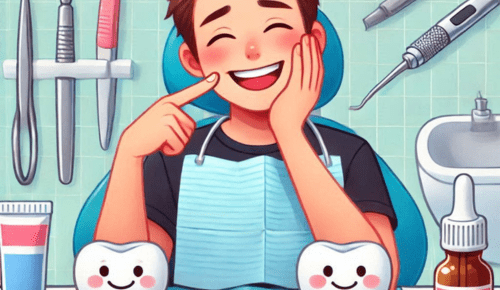Bone Loss in the Jaw: Causes and How Grafting Restores Function
Jawbone health is important not only for keeping your smile beautiful but also for overall oral functioning. The jawbone helps support teeth, keeps your facial structure intact, and plays an important role in everyday tasks like chewing and speaking. Bone loss in the jaw can be because of many reasons, which can affect the functioning and appearance of your face.
If you are dealing with jawbone loss, which can be caused by factors like missing teeth, periodontal disease, or trauma, contact a professional Jersey Village dentist. An experienced dentist will do a full checkup of your oral health and suggest the best possible treatment based on your budget and needs.
In this article, you will learn some primary causes of jawbone loss, the process of bone grafting, and how early Intervention can be helpful. Having the right information and a deep understanding of this problem can help you make the best decision and get back both function as well as appearance.
What Causes Bone Loss in the Jaw?
Bone loss in the jaw happens because of many factors, and each one of them has a different effect on your oral health. It is important to understand these causes so that you can get the right treatment and address the issues as soon as possible.
Periodontal Disease
Gum disease is the most common reason for jawbone loss. If you do not treat gum disease, then the bacteria in your gums will start to destroy the structure supporting the gums, that is, the jawbone. This, with time, can result in bone loss and tooth instability.
Missing Teeth
The jawbone needs regular stimulation from chewing; this stimulation helps maintain the density of your jawbone. When a tooth is lost, the lack of pressure can signal the bone to start resorbing, which, in turn, causes it to shrink with time and weaken the area.
Trauma and Injury
If you have experienced physical trauma like fracture or dislocation, then it can also damage your jawbone. This can happen even after your injuries are healed because sometimes trauma stops blood flow to it and results in instability in the affected area.
Health Conditions and Lifestyle
If you have health conditions like osteoporosis, then it can also cause loss of bone density, which also affects your jawbone. Similarly, if you are a smoker, then smoking can also affect bone healing and regeneration, which can boost bone loss.
How Bone Grafting Helps to Restore Jaw Function
Bone grafting is a dental procedure that helps restore lost jawbones. This makes it possible for people who are suffering from jawbone loss to get back both function and appearance.
The Bone Grafting Process
The procedure starts with the dentist placing a graft material in the area where there has been one loss. This material can be synthetic, from a donor, or taken from the patient’s body. With time, this graft stimulates new bone growth and joins it with the structure that was already present.
Types of Bone Grafting
There are different techniques that are used to help with different needs. Socket preservation helps maintain bone after a tooth has been extracted; ridge augmentation can help restore the shape of your jaw, and sinus lifts help prepare the upper jaw for implants. All of these techniques help in the grafting process based on the needs of the patient.
The Benefits of Early Intervention for Bone Loss
Early detection is important for any problem. If you detect and start treating jawbone loss early, then it can keep you safe from complications and increase the success rate of restorative procedures. It is important to take action as soon as possible.
Prevention of More Damage
If you start treating the issue early on, then it can stop the damage and reduce the risk of tooth loss, gum issues, and damage to your jaw structure. Early treatments are more effective and less intense.
Facilitating Dental Implants
A stable jawbone is important if you want to have a successful dental implant procedure. It is important to make your bone strong, and grafting helps keep the implants secure and functional for a long time.
Your Smile Deserves the Best!
Do not let bone loss affect your oral health and confidence. Contact an experienced dentist today and get the best treatment based on your problem and your dental goals. Take the first step towards long-lasting oral health today!

